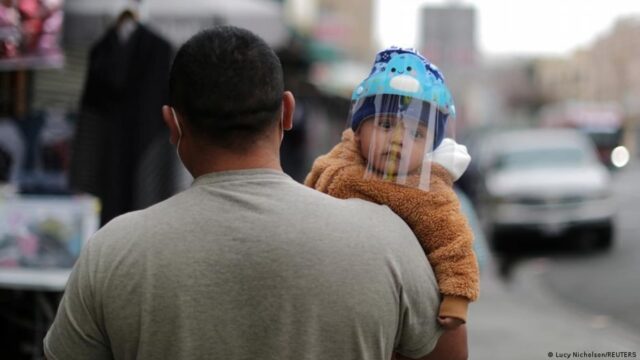In the life of a young kid, two years is a long time. Are our children suffering as a result of this period of masks, isolation, and added stress? And, if so, how significant and long-lasting will it be?
Then there was the coronavirus epidemic, which ripped through our lives, turned the globe upside down, and caused panic and dread. Parents now had a new concern: their child may contract Covid-19.
As we go from pandemic to endemic – learning to live with Covid-19 — some parents are concerned about a new set of issues: Is it possible that the limits that have been implemented to try to contain the epidemic are affecting my child?
The epidemic is all they’ve ever known for those youngsters who are now two years old. Even four-year-old will have spent half their lives wearing masks, avoiding social contact, and being kept in some form of lockdown or quarantine. This is all quite natural to them.
New study has shed light on how pandemic preparedness measures have impacted families and children. And it appears that the children are not doing well.
Sean Deoni is a biophysicist at Brown University’s Advanced Baby Imaging Lab and an associate professor of pediatrics. The lab focuses on early childhood development, or “how we generate healthy children,” as he puts it.
Researchers screen newborns and toddlers on their motor, cognitive, and linguistic abilities in addition to employing imaging such as MRIs, with in-person assessments at the lab continuing long after the epidemic hit.
At first, the researchers suspected that their own mask-wearing had anything to do with the unfavorable outcomes. Other studies based on parent reporting, on the other hand, has corroborated this pattern, ruling out disguising as a substantial impact.
“It’s probably not the masks, it’s probably not the atmosphere in which the kids are being evaluated; it’s probably a more fundamental alteration as a result of the epidemic,” Deoni added.
He and his colleagues are testing the concept that delays in infant development are caused by a lack of stimulation.
Parents were asked to assess their own and their children’s stress levels, as well as report on mood and whether or not their children were exhibiting emotional or behavioral difficulties.
Children were less joyful during lockdown periods, according to Natalie Christner, a child psychology postdoc at the lab, which performs tests on children’s social and emotional development. “There was a significant influence on their well-being: parents report that their children had fewer happy emotions,” she added.
Deoni advised, “Just do your duty as a parent.” The brain is similar to a muscle that becomes stronger as it is stimulated. Playing, reading, tickling, engaging, talking, hugging, roughhousing, and being present will all help establish those core abilities, he added.
“The most important thing you can do for your child is to love them.”







